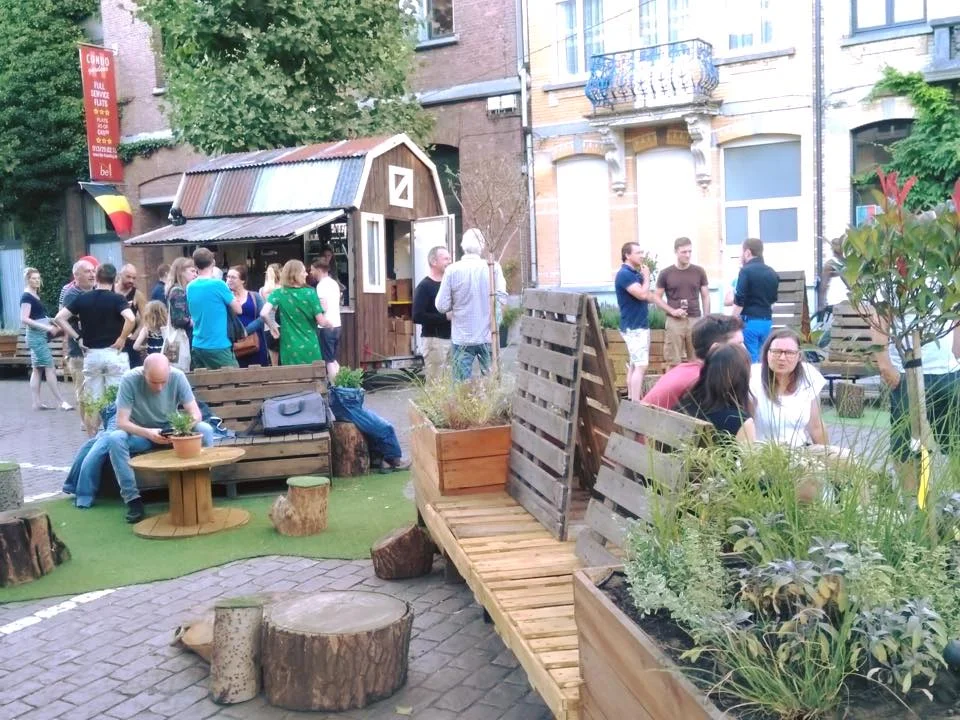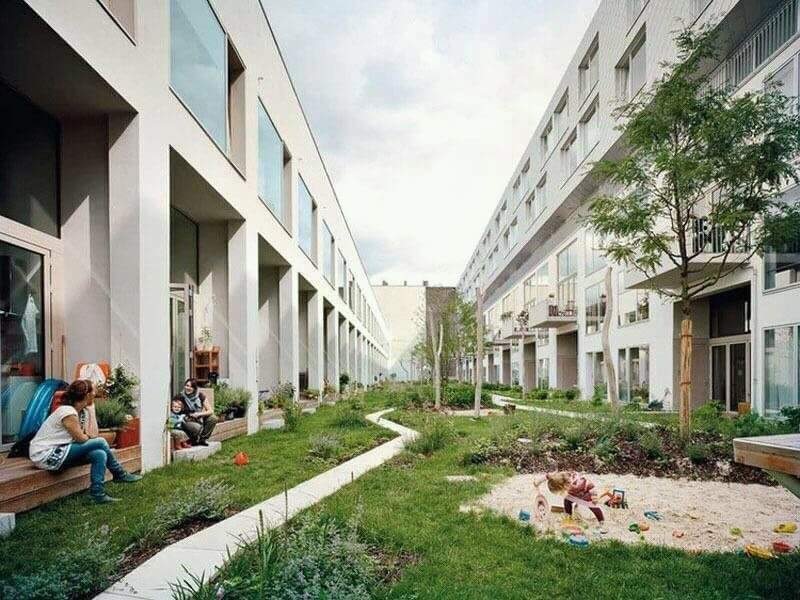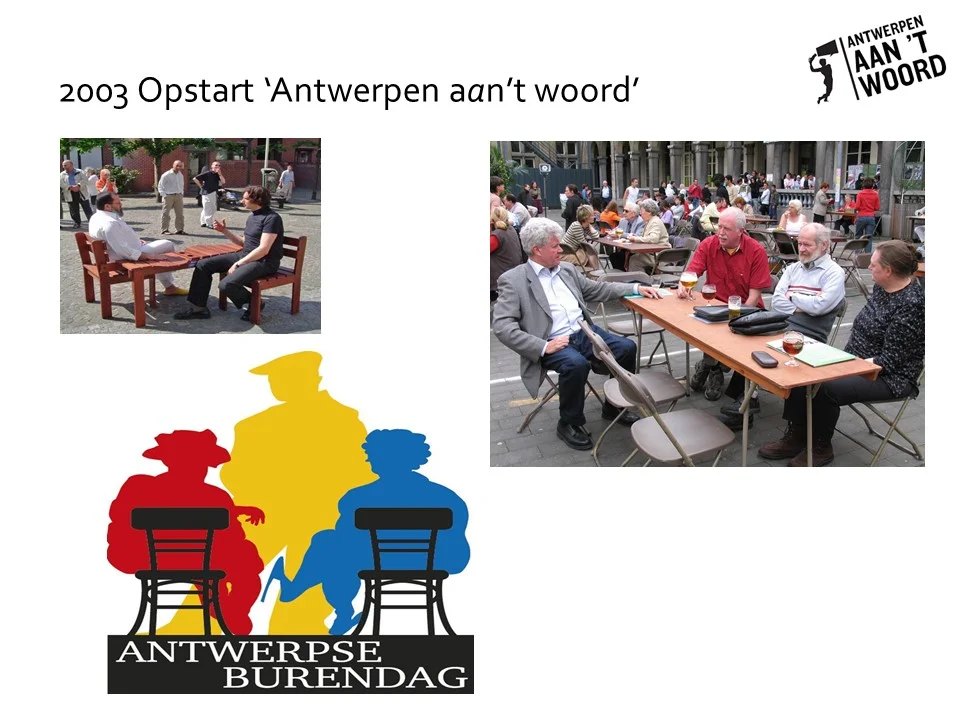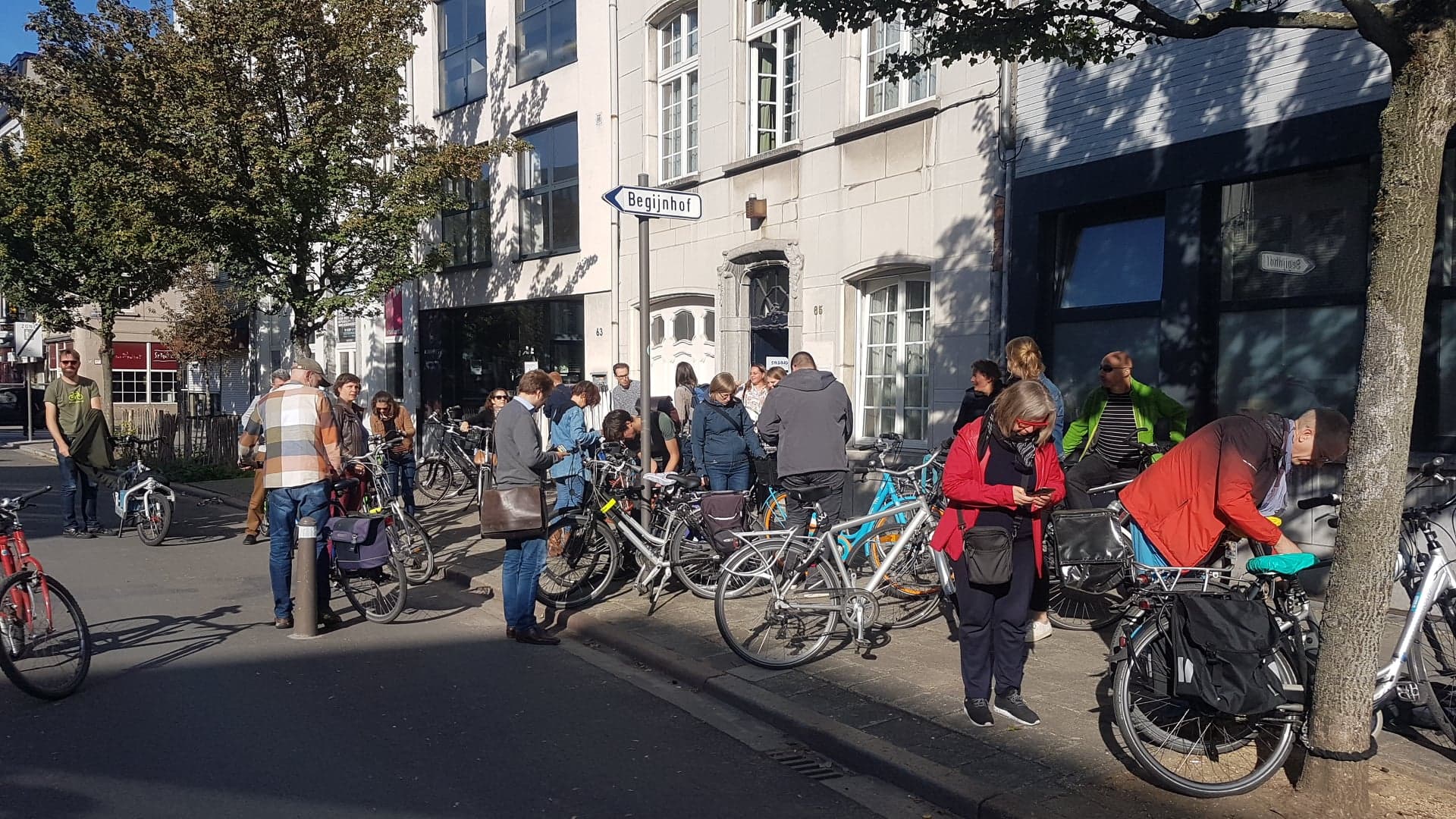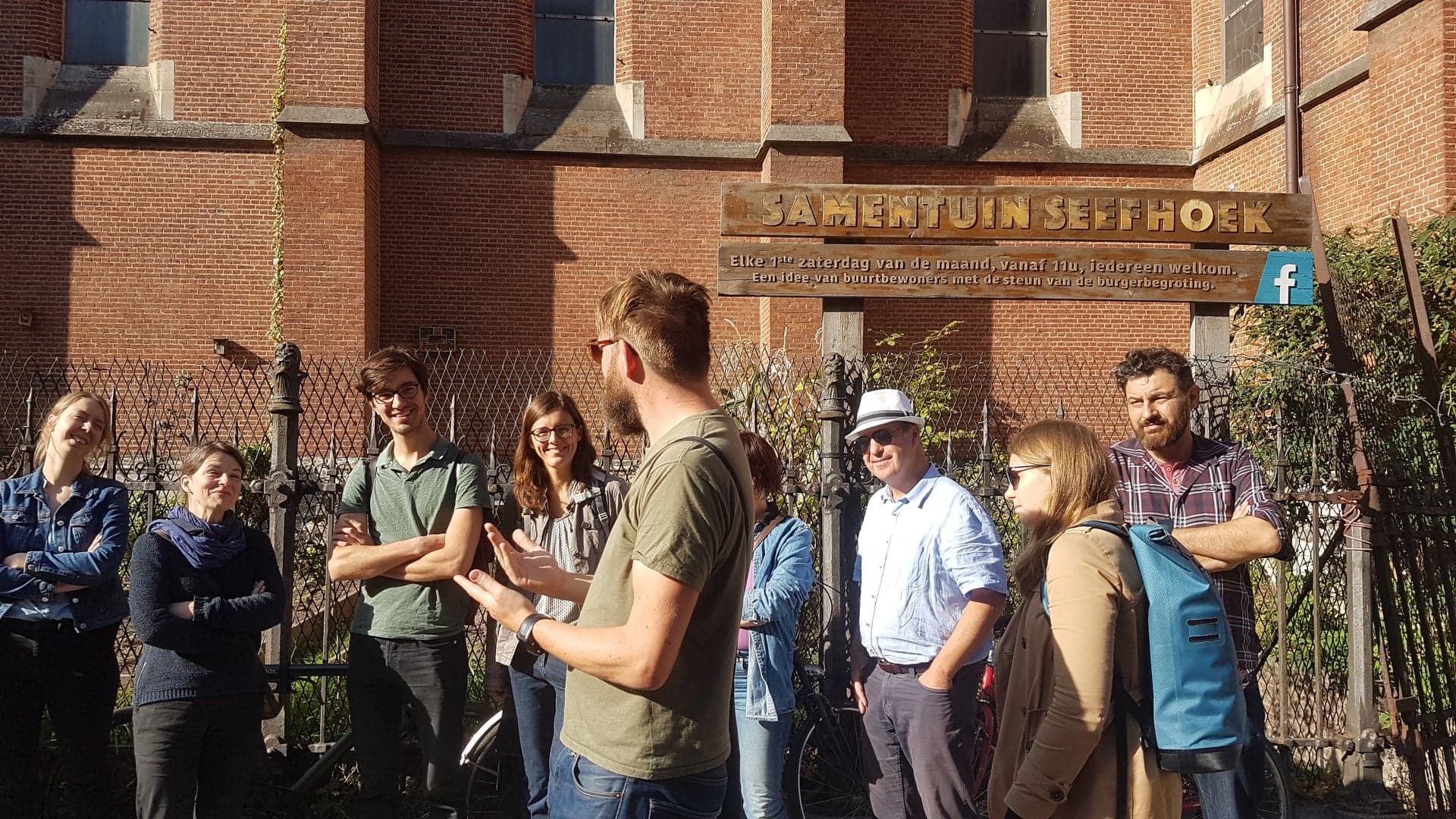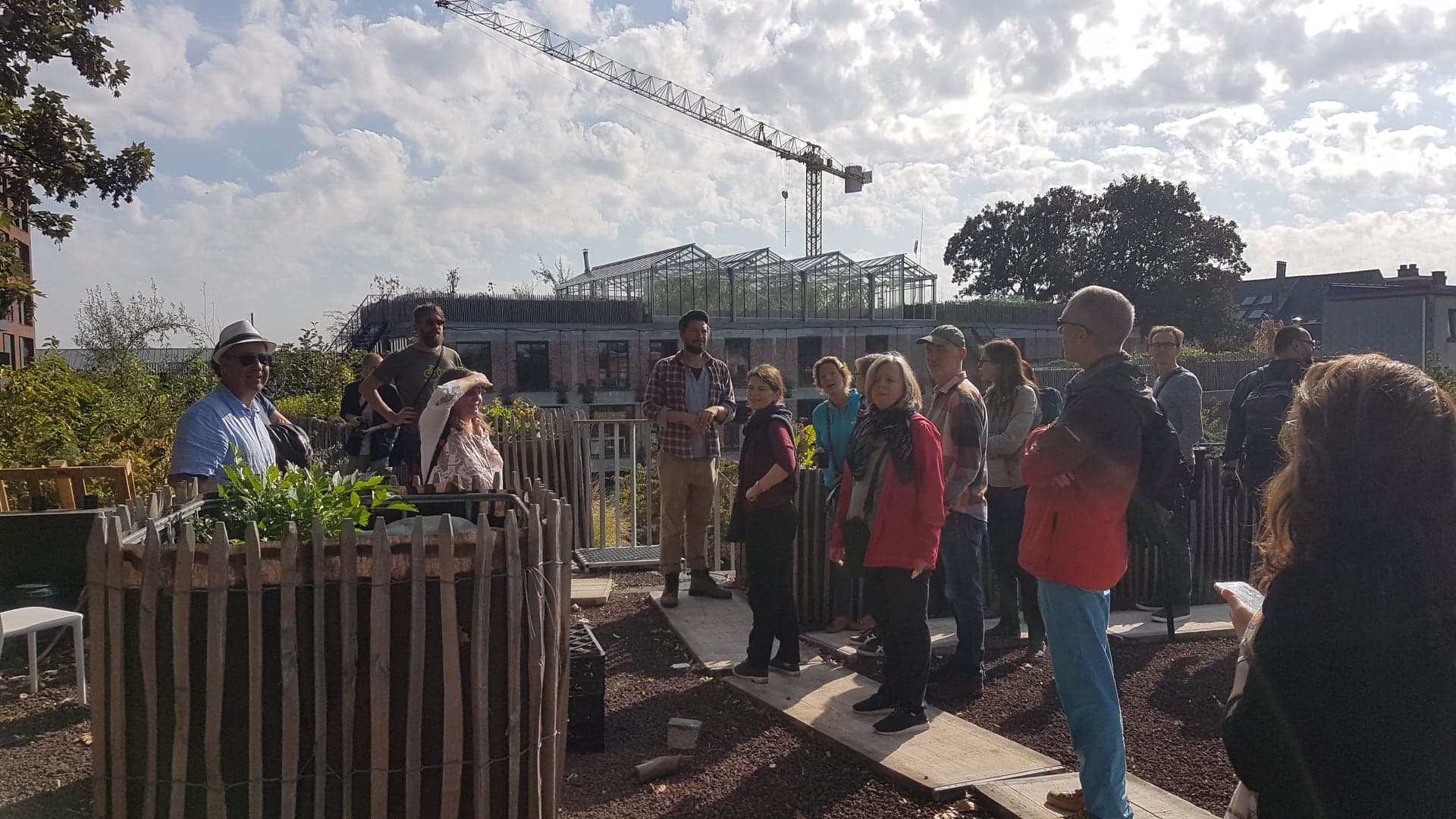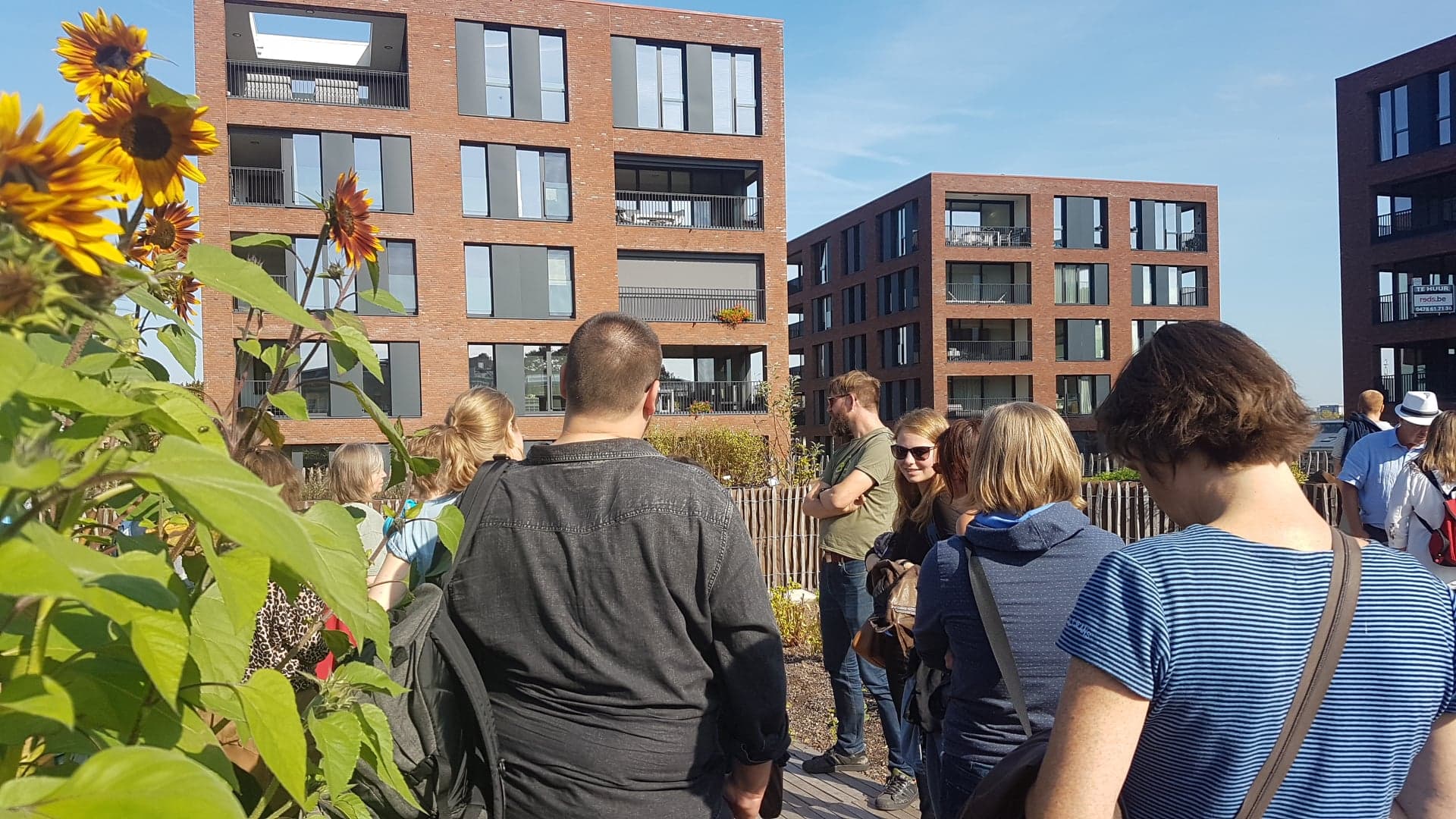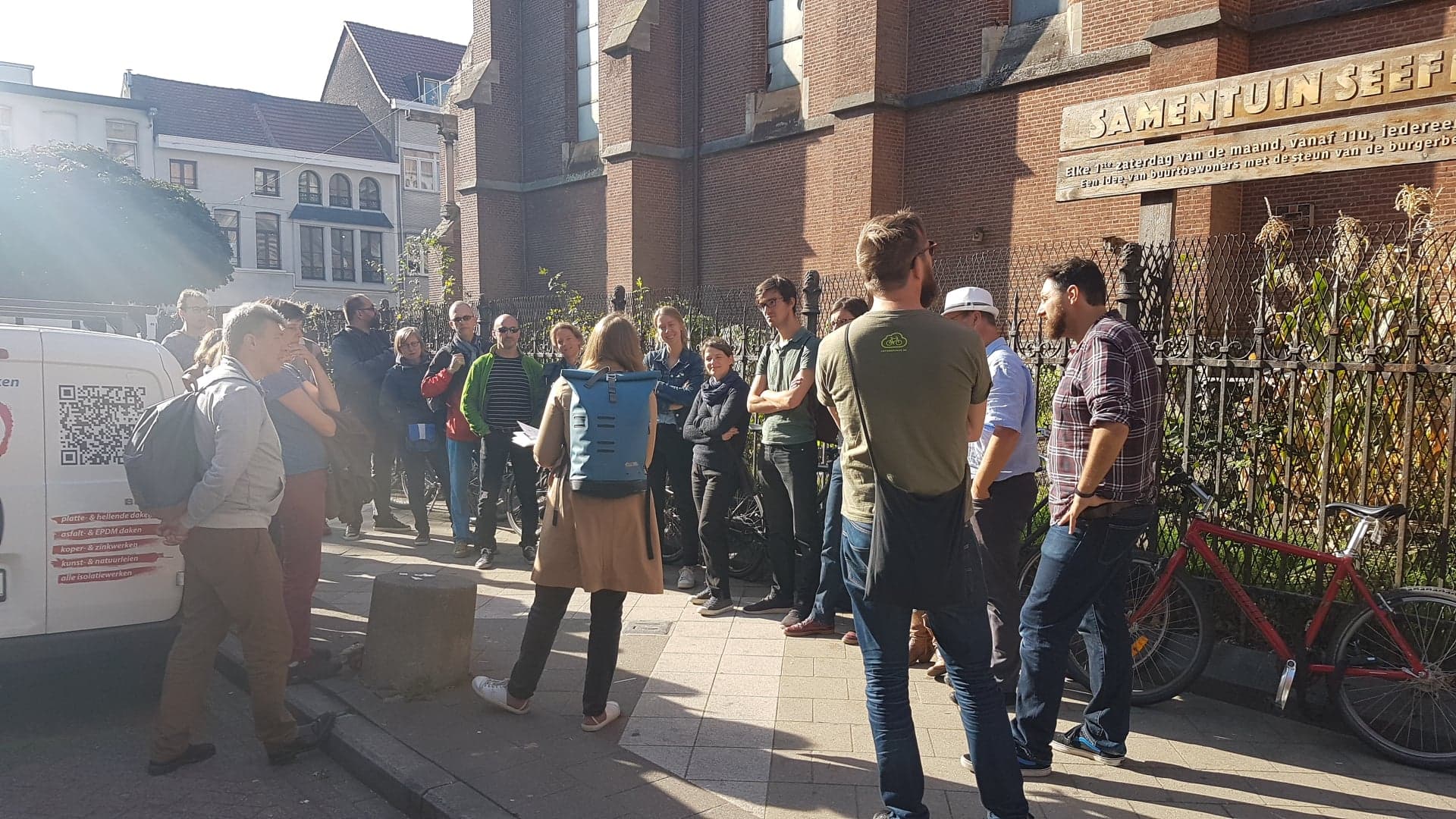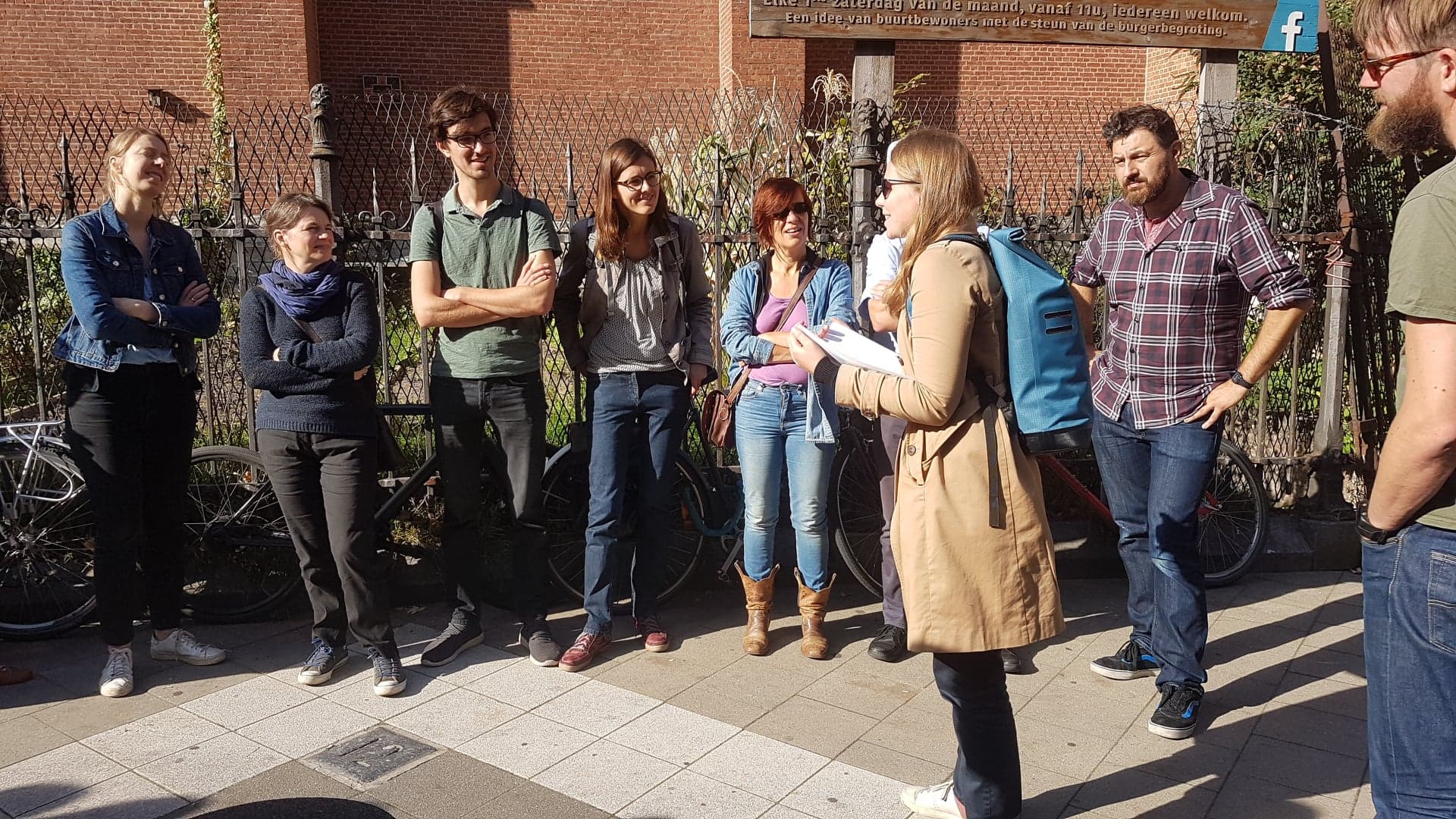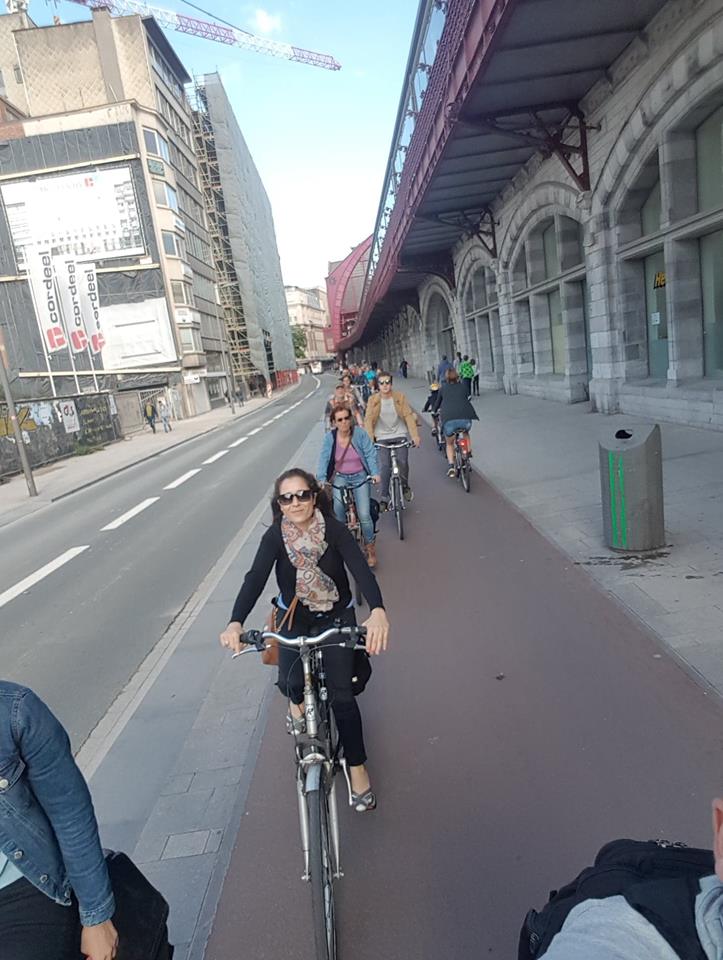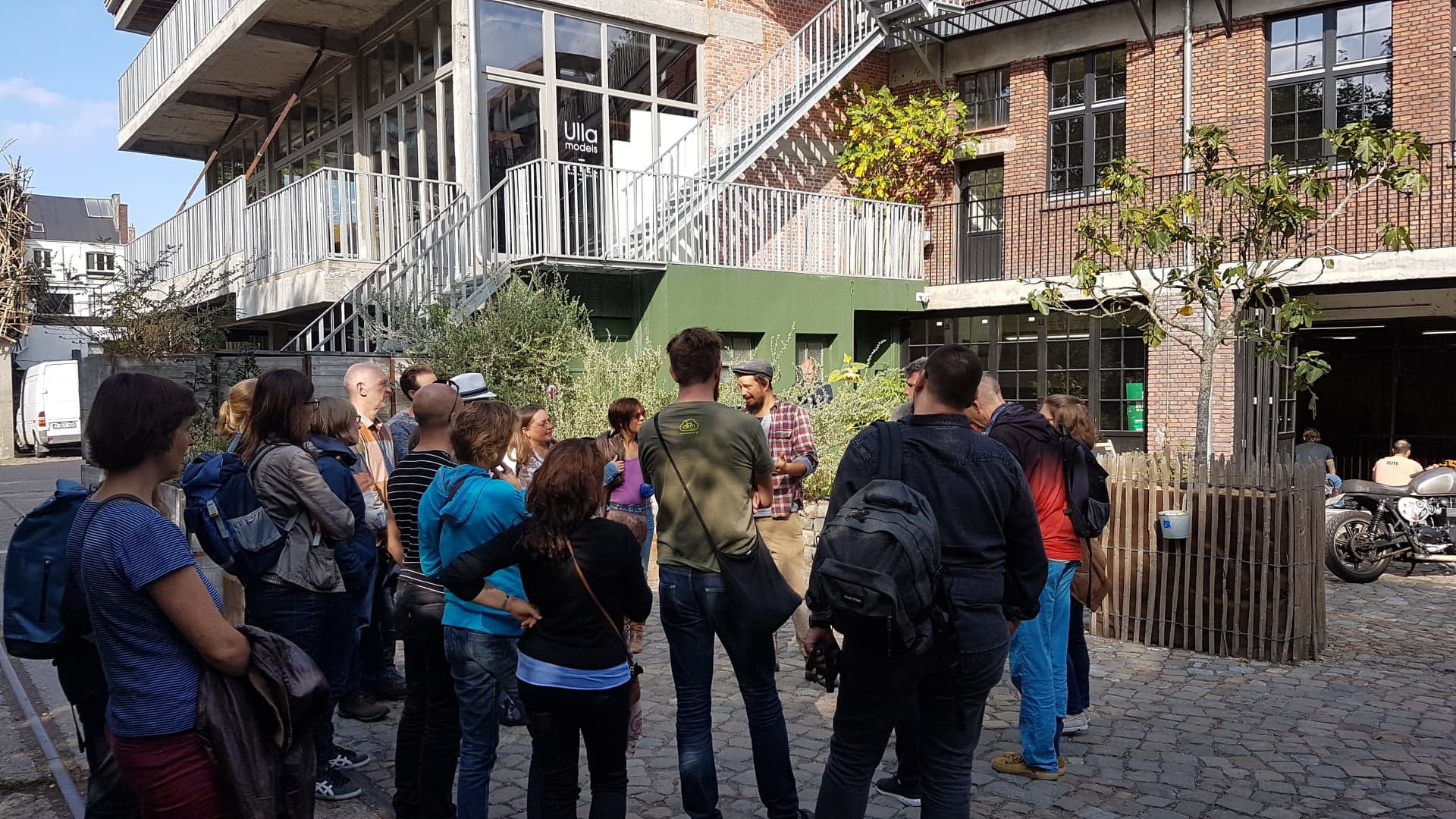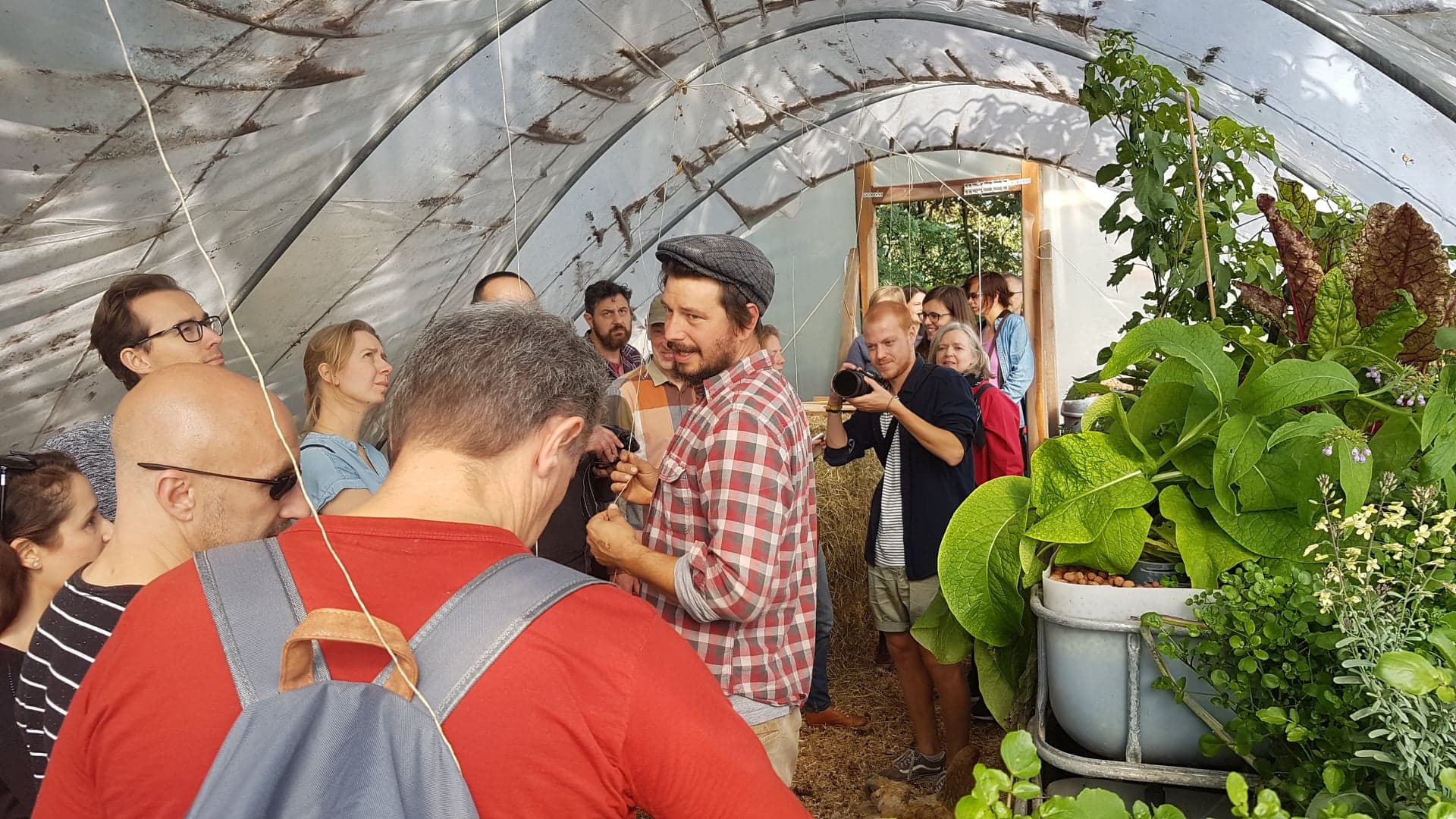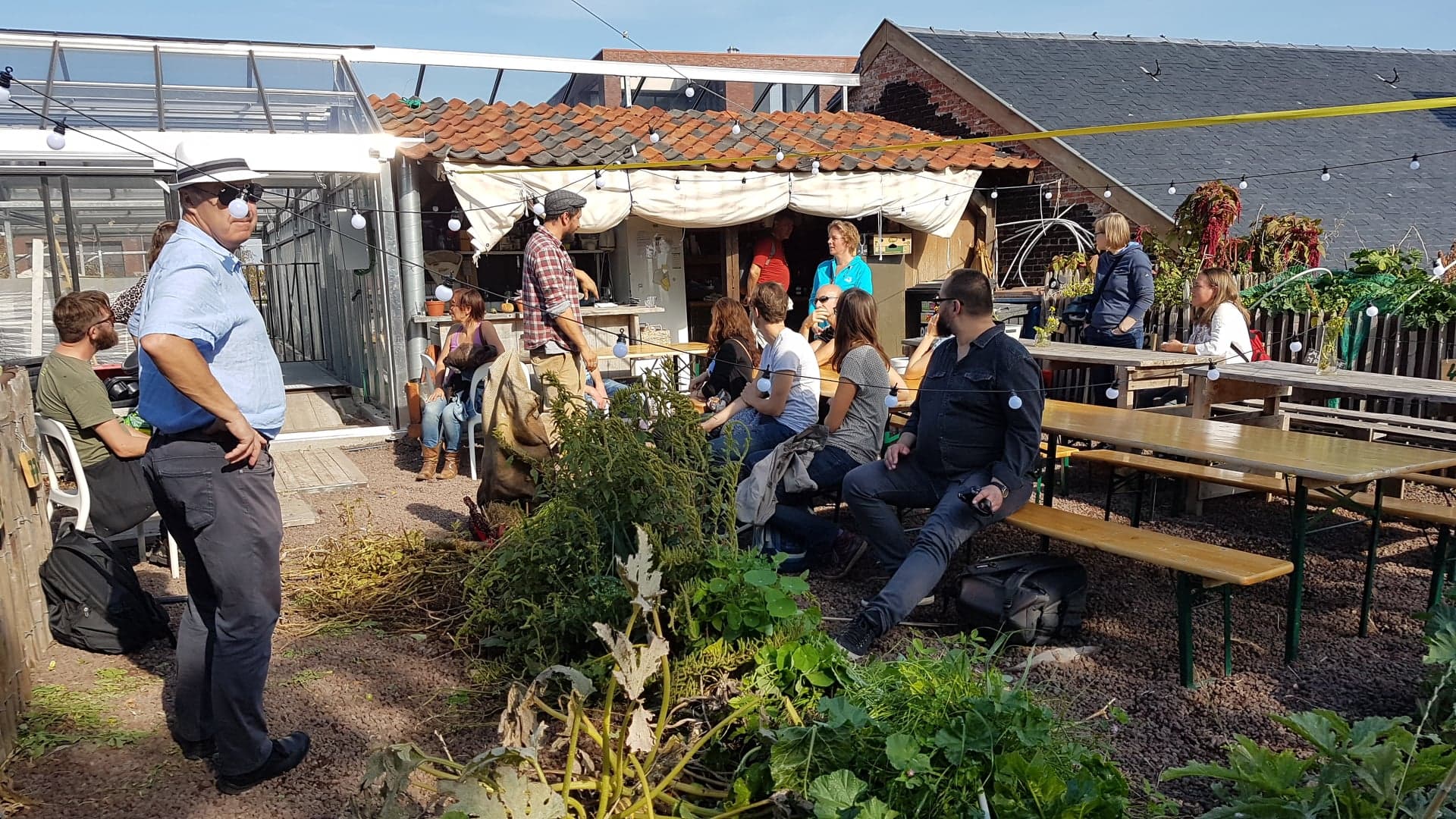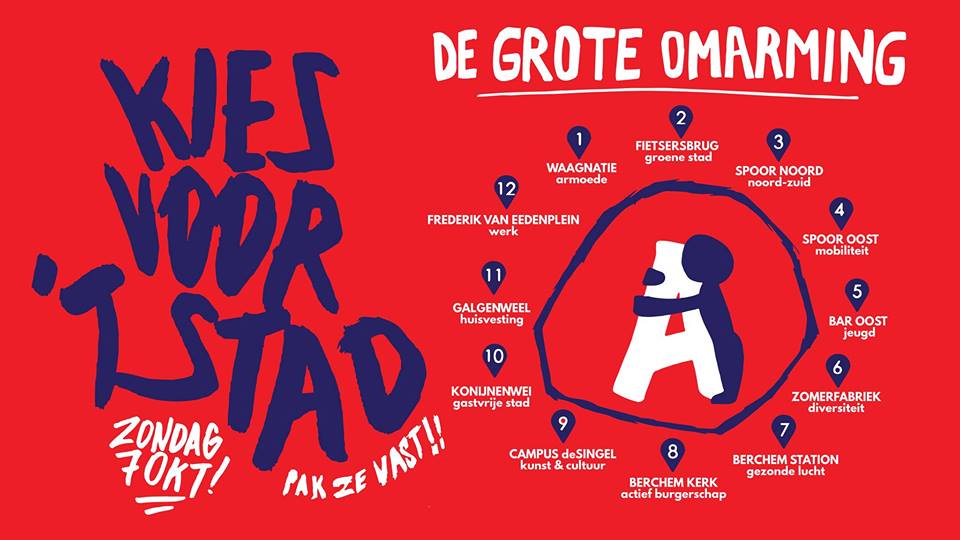Het betonnen bos ‘Antwerpen’ is langzaam aan het ‘vergroenen’. Heel veel Antwerpenaren komen met heel uiteenlopende ondergrondse, kleinschalige, innovatieve, collectieve vergroeningsinitiatieven. Speelplaatsen van scholen worden opgebroken en vergroend. Overal in de stad zijn Antwerpenaren bezig met gemeenschapstuinen, geveltuinacties, groendaken, boerenmarkten, buurderijen, boomspiegels, gevelregentonnen, groenslingers,… Ons stadsleven wordt natuurlijker, avontuurlijker en gezonder. Antwerpen evolueert naar een Tuinstad en alle Antwerpenaren worden tuinmannen en tuinvrouwen.
Tijdens BOTANIK #3 City Wildlife (zaterdag 5 mei, de Singel) organiseerden we voor het eerst in Antwerpen een interactieve ‘Commons assembly’. Een soort Staten-generaal waar initiatiefrijke Antwerpenaren verzamelen. Burgers, ondernemers, ambtenaren, politici, activisten, studenten, … kwamen een ganse dag samen om elkaar te ontmoeten, te inspireren, te discussiëren, samen plannen te smeden om Antwerpen structureel te gaan vergroenen.
Het eindrapport kan u downloaden via https://www.dropbox.com/s/z1h9uf2pqnkiyls/Commons%20Assembly%20Antwerpen%20Tuinstad%20def.pdf?dl=0
ANALYSE EN PROBLEEMSTELLING: WAAROM ANTWERPEN NOG GEEN TUINSTAD IS…
•Er is heel veel onderbenut potentieel bij de Antwerpenaar. Heel veel Antwerpenaren zijn bereid om bij te dragen aan een groenere stad. Individueel (bvb. gevelgroen) en collectief (bvb. een 'Tuinstraat'). Maar nog heel weinig Antwerpenaren zijn vertrouwd met collectief groenbeheer. Ze beschikken nog over beperkte expertise, maar ook over beperkte tools en ruimte om te oefenen.
•Er is de laatste jaren enorm veel groeninitiatief in Antwerpen. Maar het initiatief is versnipperd, komt vanuit heel diverse hoeken: burgers, middenveld, diverse overheden, ondernemers, kennisinstellingen, … Er is een beperkte cultuur in Antwerpen om kennis, ervaring, netwerken, (financiële middelen),… mbt vergroening te delen.
•Er is in Antwerpen geen gemeenschappelijke visie en actie mbt ‘Antwerpen Tuinstad’ . De dialoog tussen actoren en stakeholders, is beperkt, er is beperkte interactie tussen informele en formele beleidsprocessen.
•Vergroenen van Antwerpen als strategie voor inclusie, sociale innovatie, ontwikkeling lokale economie, duurzame stadslandbouw en tewerkstelling is nog onontgonnen.
•In de praktijk zien we dat de stedelijke diensten steeds minder capaciteit en/of middelen hebben om de stad verder te vergroenen.
‘ASSEMBLY OF THE COMMONS’- STATEN-GENERAAL VAN ANTWERPSE VERGROENERS
Diverse actieve vergroeners verzamelden, leerden elkaar beter kennen. Ze leerden van elkaar; ervaring, kennis, inzichten, instrumenten, contacten, … werden gedeeld
Samen ontwikkelden ze nieuwe commonsgerichte experimenten met als doel:
•Activeren nieuw groen gemeengoed
•Vergroenen als strategie om de stad te verbinden
•Nieuwe samenwerkingen: burgers-overheid-ondernemers
LEERLESSEN EN RESULTATEN:
Er zijn in Antwerpen bijzonder leerrijke en diverse commonsgerichte vergroeningsinitiatieven. Ze leren ons dat o.a. de schaal, de aard van de vergroening en de capaciteiten van de beheerders enorm belangrijk zijn mbt collectief beheer. We trachten fietslussen te organiseren en initiatieven te bloggen zodat kennis, ervaring, … laagdrempelig gedeeld kan worden.
Je hebt als commoner weinig hefbomen om mensen en organisaties te stimuleren om samen te werken. Je kan dit als commoner ook positief benaderen; het geeft ruimte om te claimen als commons (letterlijk en figuurlijk). Er is wel grote bereidheid bij Velt en Natuurpunt om groeninitiatieven te ondersteunen.
Er is in Antwerpen weinig verbinding/interactie tussen de informele en de representatieve/formele (ADOMA, Groenplan, s-RSA, klimaatplan, waterplan, politieke partijen, …). We adviseren commoners om zoveel mogelijk informeel contact te nemen met de administratie, om dialoog en samenwerking te bewerkstelligen.
Er zijn in Antwerpen nog maar weinig groene ondernemers (‘generatieve economie’), met een duurzaam verdienmodel. We adviseren aan jonge, groene ondernemers om zoveel mogelijk met elkaar in dialoog te gaan, samen te werken, middelen te delen.
Nieuwe commonsgerichte leerexperimenten werden na de Assembly uitgebroed en bij de Burgerbegroting ingediend:
•Gebruik van parklets als middel om straten te claimen/vergroenen
•Experimenten met CSA in de stad: samen paddenstoelen kweken in kelders van een kerk, bijenkasten houden op groendaken, …
•Het dak van een Hogeschool als een vitale common
•Een nieuwe Commons Assembly specifiek mbt Stadslandbouw
•Projecten om regenwater in straten te ‘commonificeren’
•Vorming, opleiding en coaching mbt het opstarten van burgercoöperaties
We ontwikkelden een nieuw soort buurtcontract mbt het collectief beheer van groen in de stad.
We ontwikkelden een nieuw soort groenstedelijk netwerk: burger(collectief)/middenveld-stad-ondernemers. We bekijken met o.a. het Ecohuis of en hoe we dat in Antwerpen verder gaan organiseren cf ‘Gent en garde’.
Dergelijke assemblies zijn ook interessant voor andere sectoren. We onderzoeken dit verder ikv het Antwerps Commons Transitie Plan Antwerpen
Een initiatief van Commons Lab Antwerpen met de steun van BOTANIK, Burgerbegroting district Antwerpen, de Singel, Ecohuis, Tuin in de stad, jeugddienst stad Antwerpen, Stadsmakers, Ecohuis, Velt vzw, Natuurpunt Antwerpen stad, Beweging.net, Posthof Berchem vzw, BIVAK, Stadslab 2050 en vele partners.




